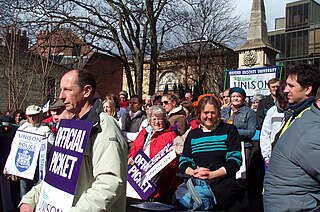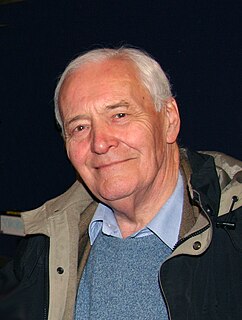
The politics of Barbados function within a framework of constitutional monarchy and a parliamentary government with strong democratic traditions; constitutional safeguards for nationals of Barbados include: freedom of speech, press, worship, movement, and association.

A Commonwealth realm is a sovereign state in which Queen Elizabeth II is the reigning constitutional monarch and head of state. Each realm is independent from the other realms. As of 2019, there are 16 Commonwealth realms: Antigua and Barbuda, Australia, The Bahamas, Barbados, Belize, Canada, Grenada, Jamaica, New Zealand, Papua New Guinea, Saint Kitts and Nevis, Saint Lucia, Saint Vincent and the Grenadines, Solomon Islands, Tuvalu, and the United Kingdom. All 16 Commonwealth realms are members of the Commonwealth of Nations, an intergovernmental organisation of 53 member states. Elizabeth II is Head of the Commonwealth.
Republicanism in the United Kingdom is the political movement that seeks to replace the United Kingdom's monarchy with a republic. For those who want a non-hereditary head of state, the method by which one should be chosen is not agreed upon, with some favouring an elected president, some an appointed head of state with little power. Others support something akin to the Swiss model, with a directorate functioning as a collective head of state.
The Socialist Campaign Group of Labour MPs, often known as the Campaign Group, is a left-wing, democratic socialist grouping of Labour Party Members of Parliament in the House of Commons of the United Kingdom. It was formed in December 1982 as an alternative Parliamentary left-wing group to the Tribune Group. The Campaign Group, as it is commonly known, is often considered on the hard left of the Labour Party and has been highly critical of New Labour.

The United Kingdom European Communities membership referendum, also known variously as the Referendum on the European Community , the Common Market referendum and EEC membership referendum, took place under the provisions of the Referendum Act 1975 on 5 June 1975 in the United Kingdom to gauge support for the country's continued membership of the European Communities (EC) — often known at the time as the ‘European Community’ and the ’Common Market’ — which it had entered two and a half years earlier on 1 January 1973 under the Conservative government of Edward Heath. Labour's manifesto for the October 1974 general election had promised that the people would decide ’through the ballot box’ whether to remain in the EC.

The Government of Australia is the government of the Commonwealth of Australia, a federal parliamentary constitutional monarchy. It is also commonly referred to as the Australian Government, the Commonwealth Government, Her Majesty's Government, or the Federal Government.

The Australian republic referendum held on 6 November 1999 was a two-question referendum to amend the Constitution of Australia. The first question asked whether Australia should become a republic with a President appointed by Parliament following a bi-partisan appointment model which had been approved by a half-elected, half-appointed Constitutional Convention held in Canberra in February 1998. The second question, generally deemed to be far less important politically, asked whether Australia should alter the Constitution to insert a preamble. For some years opinion polls had suggested that a majority of the electorate favoured a republic. Nonetheless, the republic referendum was defeated due to division among republicans on the method proposed for selection of the president and dissident republicans subsequently supporting the no campaign.
Eric Samuel Heffer was a British socialist politician. He was Labour Member of Parliament for Liverpool Walton from 1964 until his death. His working-class background and consciousness fed into his left-wing politics, but to an extent disguised the depth of his knowledge: with 12,000 books in his home, he admitted to being a bibliophile. Due to his experience as a professional joiner, he made a speciality of the construction industry and its employment practices, but was also concerned with trade union issues in general. He changed his view on the European Common Market from being an outspoken supporter to an outspoken opponent, and served a brief period in government in the mid-1970s. His later career was dominated by his contribution to debates within the Labour Party and he defended the far left-dominated Liverpool City Council.

Trade unions in the United Kingdom were first decriminalised under the recommendation of a Royal Commission in 1867, which agreed that the establishment of the organisations was to the advantage of both employers and employees. Legalised in 1871, the Trade Union Movement sought to reform socio-economic conditions for working men in British industries, and the trade unions' search for this led to the creation of a Labour Representation Committee which effectively formed the basis for today's Labour Party, which still has extensive links with the Trade Union Movement in Britain. Margaret Thatcher's governments weakened the powers of the unions in the 1980s, in particular by making it more difficult to strike legally, and some within the British trades union movement criticised Tony Blair's Labour government for not reversing some of Thatcher's changes. Most British unions are members of the TUC, the Trades Union Congress, or where appropriate, the Scottish Trades Union Congress or the Irish Congress of Trade Unions, which are the country's principal national trade union centres.

The monarchy of Australia concerns the form of government in which a hereditary king or queen serves as the nation's sovereign and head of state. Australia is governed under a form of constitutional monarchy, largely modelled on the Westminster system of parliamentary government, while incorporating features unique to the Constitution of Australia. The present monarch is Elizabeth II, styled Queen of Australia, who has reigned since 6 February 1952. She is represented in Australia as a whole by the Governor-General, in accordance with the Australian Constitution and letters patent from the Queen, and in each of the Australian states, according to the state constitutions, by a governor, assisted by a lieutenant-governor. The monarch appoints the Governor-General and the governors, on the advice respectively of the Commonwealth government and each state government. These are now almost the only constitutional functions of the monarch with regard to Australia.

The Roman Constitution was an uncodified set of guidelines and principles passed down mainly through precedent. The Roman constitution was not formal or even official, largely unwritten and constantly evolving. Having those characteristics, it was therefore more like the British and United States common law system than a sovereign law system like the English Constitutions of Clarendon and Great Charter or the United States Constitution, even though the constitution's evolution through the years was often directed by passage of new laws and repeal of older ones.

The Constitution of Australia is the supreme law under which the government of the Commonwealth of Australia operates, including its relationship to the States of Australia. It consists of several documents. The most important is the Constitution of the Commonwealth of Australia, which is referred to as the "Constitution" in the remainder of this article. The Constitution was approved in a series of referendums held over 1898–1900 by the people of the Australian colonies, and the approved draft was enacted as a section of the Commonwealth of Australia Constitution Act 1900 (Imp), an Act of the Parliament of the United Kingdom.

The United Kingdom does not have a codified constitution such as other countries tend to have. Instead of such a constitution, certain documents stand to serve as replacements in lieu of one. These texts and their provisions therein are considered to be constitutional, such that the "constitution of the United Kingdom" or "British constitution" may refer to a number of historical and momentous laws and principles like the Acts of Union 1707 and the Acts of Union 1800 which formulate the country's body politic. Thus the term "UK constitution" is sometimes said to refer to an "unwritten" or uncodified constitution. The British constitution primarily draws from four sources: statute law, common law, parliamentary conventions, and works of authority. Similar to a constitutional document, it also concerns both the relationship between the individual and the state and the functioning of the legislature, the executive, and the judiciary.
A Dominion was the "title" given to the semi-independent polities under the British Crown, constituting the British Empire, beginning with Canadian Confederation in 1867. "Dominion status" was a constitutional term of art used to signify an independent Commonwealth realm; they included Canada, Australia, New Zealand, Newfoundland, South Africa, and the Irish Free State, and then from the late 1940s also India, Pakistan, and Ceylon. The Balfour Declaration of 1926 recognised the Dominions as "autonomous Communities within the British Empire", and the 1931 Statute of Westminster confirmed their full legislative independence.
The royal prerogative is a body of customary authority, privilege, and immunity, recognized in common law and, sometimes, in civil law jurisdictions possessing a monarchy, as belonging to the sovereign and which have become widely vested in the government. It is the means by which some of the executive powers of government, possessed by and vested in a monarch with regard to the process of governance of the state, are carried out.

In the United Kingdom, devolution is the statutory granting of powers from the Parliament of the United Kingdom to the Scottish Parliament, the National Assembly for Wales, the Northern Ireland Assembly and the London Assembly and to their associated executive bodies the Scottish Government, the Welsh Government, the Northern Ireland Executive and in England, the Greater London Authority and combined authorities.












